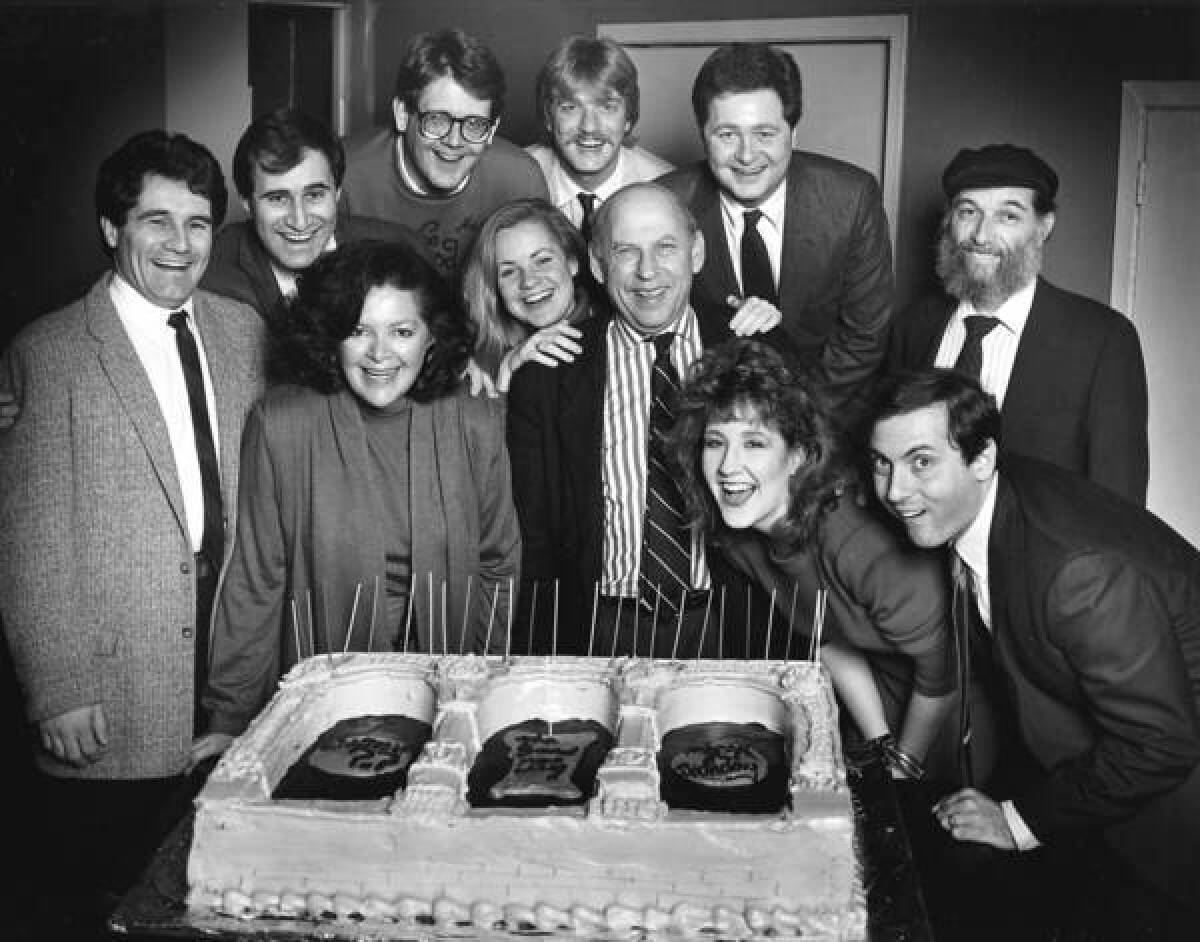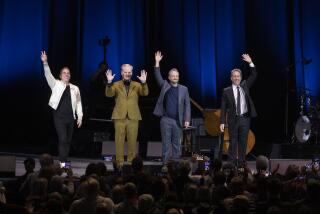Bernard ‘Bernie’ Sahlins dies at 90; co-founder of Second City

- Share via
Bernard “Bernie” Sahlins, co-founder and former owner of The Second City, the influential Chicago comedy venue that pioneered rapid-fire comedy sketches using ideas plucked from the audience, died Sunday at his home in Chicago. He was 90.
His wife, Jane Nicholl Sahlins, confirmed his death. No cause was given.
In addition to creating the birthplace of modern improvisational comedy, Sahlins also was famous for spotting big talents, quickly and early.
“Bernie’s track record for discovering future Hollywood megastars was unmatched,” said Tim Kazurinsky, one of Sahlin’s numerous discoveries, along with stars such as Bill Murray, Dan Aykroyd, John Candy, Gilda Radner and James and John Belushi. “You really can’t exaggerate his contribution.”
“Bernie was a mischievous imp with the mind of Bertrand Russell,” said George Wendt, another comic actor who got his start under Sahlins.”
Along with Howard Alk and Paul Sills, Sahlins launched the 120-seat comedy theater in 1959, converting an Old Town space that had once belonged to a Chinese laundry. The name came from A.J. Liebling’s 1952 series of New Yorker essays ridiculing Chicago.
Of the founding trio, Sahlins was the only one with any real head for business and was credited with building The Second City into a profitable powerhouse before selling it to current owner Andrew Alexander in 1984. “Bernie Sahlins made no small plans, and his legacy will be felt for generations to come,” Alexander said, calling him “a true theatrical impresario.”
Bernard George Sahlins was born in Chicago in 1922. By 1959, he was an old hand in comedy theater, even if Chicago at the time had little identity as a theatrical center. With Sills, he co-founded the Compass Players, a well-known 1950s group with roots at the University of Chicago, from which Sahlins was a 1943 graduate. (His younger brother, Marshall Sahlins, is an anthropology professor at the university.)
Compass Players is credited with shaping improv as it’s now performed, just as Sahlins is credited with inventing topical sketch comedy, the form upon which “Saturday Night Live” and many other such TV shows are based.
Sahlins was also a producer of legitimate, dramatic theater, staging shows in the Studebaker Theatre in the 1950s. He was a co-founder and business director of the Playwrights Theatre Club, an ensemble that included Mike Nichols, Elaine May, Joyce Piven and Ed Asner. He also was co-creator of SCTV, the Canadian TV comedy series that grew out of Second City in Toronto and that retains a cult following.
Known for his somewhat caustic humor and a habit of jumping around on the stage while directing, Sahlins had a famous rivalry with the late improv guru Del Close. Close believed in the purity of improvisation as an art form, while Sahlins insisted that it was best used to create original material that later would become part of a script.
“Improv never was a presentational form,” Sahlins told the Chicago Tribune in 2005. “To do it night after night in a theater setting is impossible.”
The two reconciled while Close was on his deathbed, with Sahlins conceding that improv was an art form — for that day only.
After the sale of Second City, Sahlins remained a force on the arts scene, leading international workshops on the creation of sketch comedy and directing in a wide variety of venues. He wrote a 2002 memoir, “Days and Nights at The Second City,” and published adaptations of the plays of Beaumarchais and Moliere. With his wife, who is his only immediate survivor, he was a co-founder of Chicago’s International Theatre Festival in 1986. He continued to write, consult and direct into his late 80s.
More to Read
Start your day right
Sign up for Essential California for the L.A. Times biggest news, features and recommendations in your inbox six days a week.
You may occasionally receive promotional content from the Los Angeles Times.






